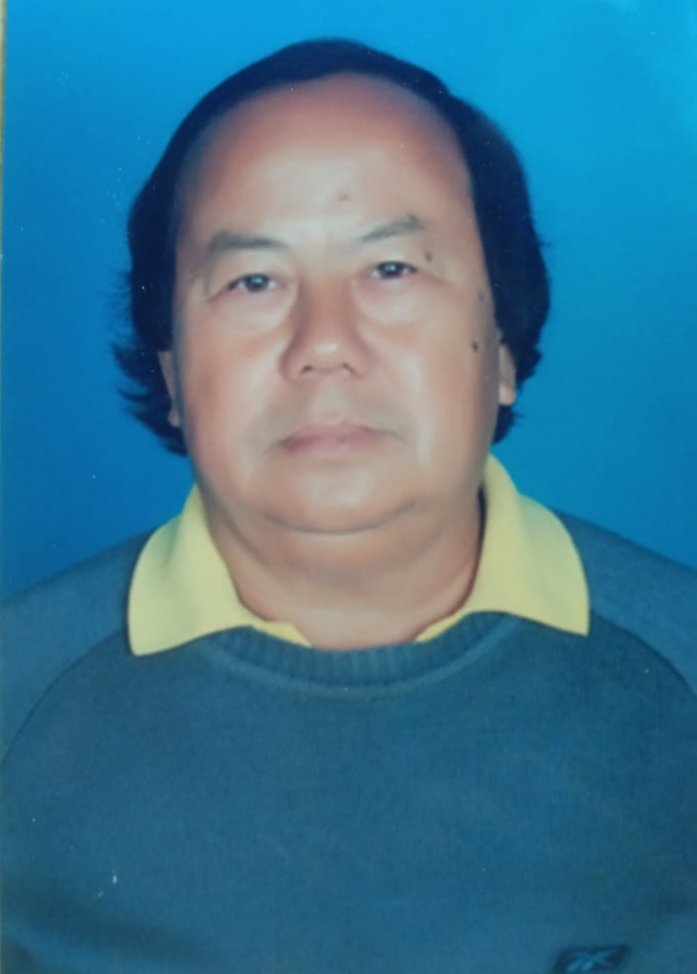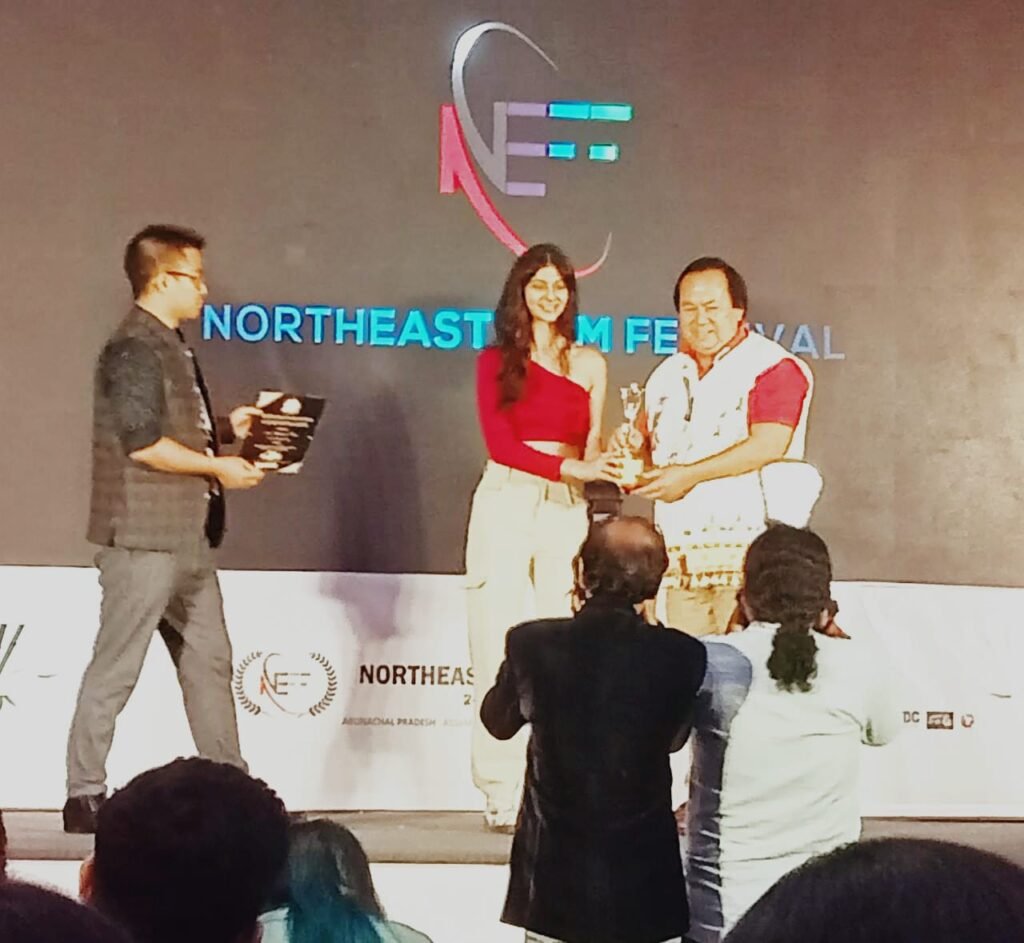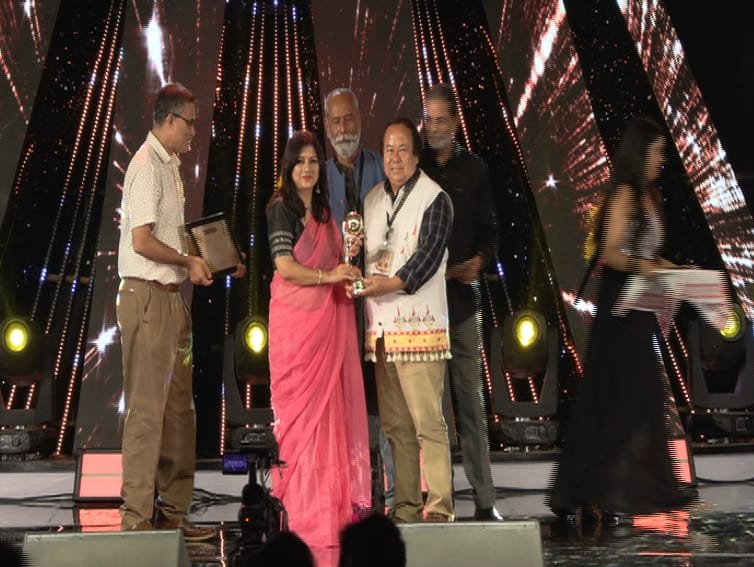


“Cinema is a very strong means to bring transformation in society. It is helpful in spreading messages and ideas about a tribe and community in a very appealing manner. Dhaniram Tisso, a filmmaker from Dongmukak is one among the very few persons from Karbi Anglong associated with cinema, who has succeeded in showcasing Karbi culture and way of life. In this issue, we will know about his life and visions of cinema.”
TDE: When and where were you born? Tell us about your parents.
DRT: I was born in Dokmoka Haberam Rongphar village in November 1957. My father Sikari Tisso, was a Mauzadar of Duar Dikharu mauza and my mother Lt. Kaban Ingtipi was a housewife only. I am the youngest among two brothers and two sisters. My childhood was spent in a village playing mostly on the Dikrut River around Dokmoka surrounded by lush green vegetation.
TDE: Tell us about your family.
DRT: My wife Maloti Killingpi is a retired teacher. We have four children – Moonjili Tissopi (works in the medical department), Rongmili Tissopi (teacher at a govt. school), Ronald Tisso (working in the cooperative sector), and Mirjili Tissopi (engaged in the private sector).
TDE: Tell us about your days as a student and the places you have studied.
DRT: I started schooling at Dokmoka Basic L.P School, then joined Dokmoka M.E School. I passed my H.S.L.C from Diphu Government Boys High School in the year 1973. Then I went to Shillong and did my graduation from North-Eastern Hills University (NEHU) at St. Edmund’s College.
TDE: How did you develop your interest in film?
DRT: My interest in film developed from my childhood as I have to volunteer from running cinemas in our school hall at Dokmoka during the post-harvesting season (December/January) to raise funds for school development. Film making itself is an art and I have tried to learn bits of the art from the films I watched.
TDE: Have you worked with the Karbi Cultural Society?
DRT: Yes. I have been associated with KCS and worked in promoting Karbi customs, tradition, culture, folk music etc. I am one of the founder members of the Karbi Youth Festival (1974).
TDE: Tell us about the making of ‘Wosobipo’?
DRT: “Wosobipo” is a milestone for Karbi cinema by which a tribe called Karbi got exposure to the world as the film was shown in various national and international levels. The film received two national awards (Swarna Kamal) for best film of a Debutant Director & Best Music Direction at the 37th National Film Awards (1990). When I was E.M (Rev) in 1988, I made this film from the Savings Fund of the District Council Revenue Department. It was made in reels. 95% of the artists were taken locally who never had faced cameras. After much difficulty the film came out as a grand success.
TDE: How many films have you made so far? Which are they?
DRT: I have made 5 feature films and a lot of T.V serials for Doordarshan in 30 years. The feature films are Wosobipo, Kanghon Killing Chongkret, Rongmilir Hahi (Assamese), Didi Mulori (Director only) and Mirbeen.
TDE: Which film is your favourite and why?
DRT: I do not have any favourite. All the films I have made are my favourites.
TDE: Apart from films, what are the other areas of your activities?
DRT: Filmmaking is my passion and also a hobby. In other areas, I do not have much interest. But I do a lot for the development of education in our areas. I am also associated with Thong Nokbe College and Dokmoka Higher Secondary School.
TDE: Tell us in brief about the history of Karbi cinema.
DRT: There is nothing much to talk about Karbi Cinema. What can be said is that Karbi Cinema is not behind. Like several other cinemas of the Northeast, many National and International awards have been received by the Karbi Cinema.
One of the worst things for Karbi filmmakers is that they do not have a proper concept and understanding of what a cinema is. Very few Karbi Filmmakers are now somehow learning to master the art. Presently, it has been seen that film producers are reluctant to invest in full-length films, the maximum focus is on the making of Musical Albums. Even at this juncture, no good sign can be seen for Karbi cinema.
The first feature film of Karbi was probably “Rit Angtong” by the Agriculture Department in 1986 but this film is now missing.
TDE: What role can cinema play to bring transformation in Karbi society?
DRT: The cinema is the most potent tool for the transformation of a nation. A good and healthy cinema can eradicate bad elements from our society as well as give good education to the youth and children. It can also generate employment for society.
TDE: In the present times, why have several filmmakers given up making Karbi films?
DRT: It is true that very less films are coming these days. The reasons are vast reasons for the slow production of Karbi films. There are no infrastructure facilities for filmmaking. No cinema halls in the entire district, so, the producers never get back their investment, forget the profit. It can also be observed that very less importance is given to cinema by the local govt. The other very important factor is the change in habits of the people. People of this age wish to see everything on their mobile handset, but very few have the interest of going to the cinema halls.
Despite all odds, I am preparing for the next film venture.
TDE: Keeping in mind the present situation, what future does Karbi cinema have?
DRT: I do not see a good future for Karbi feature films unless the local govt. give importance like they give importance to KCS and so on.
TDE: Where did you draw inspiration for the film – ‘Mirbeen’?
DRT: I consider my own individual inspiration to keep myself motivated. Film-making is my passion and I like to visualise the deeper and inner meaning of social realities (Karbi Society) through my film. When I get recognition for my work, I feel very joyful and happy.
TDE: What are your future plans?
DRT: I am preparing a Karbi feature film for exposure to the international level like Mirbeen.